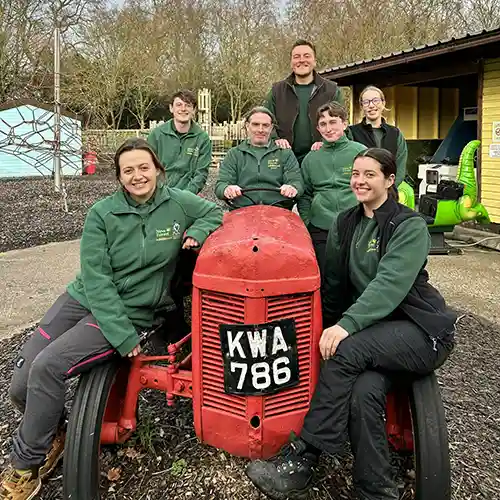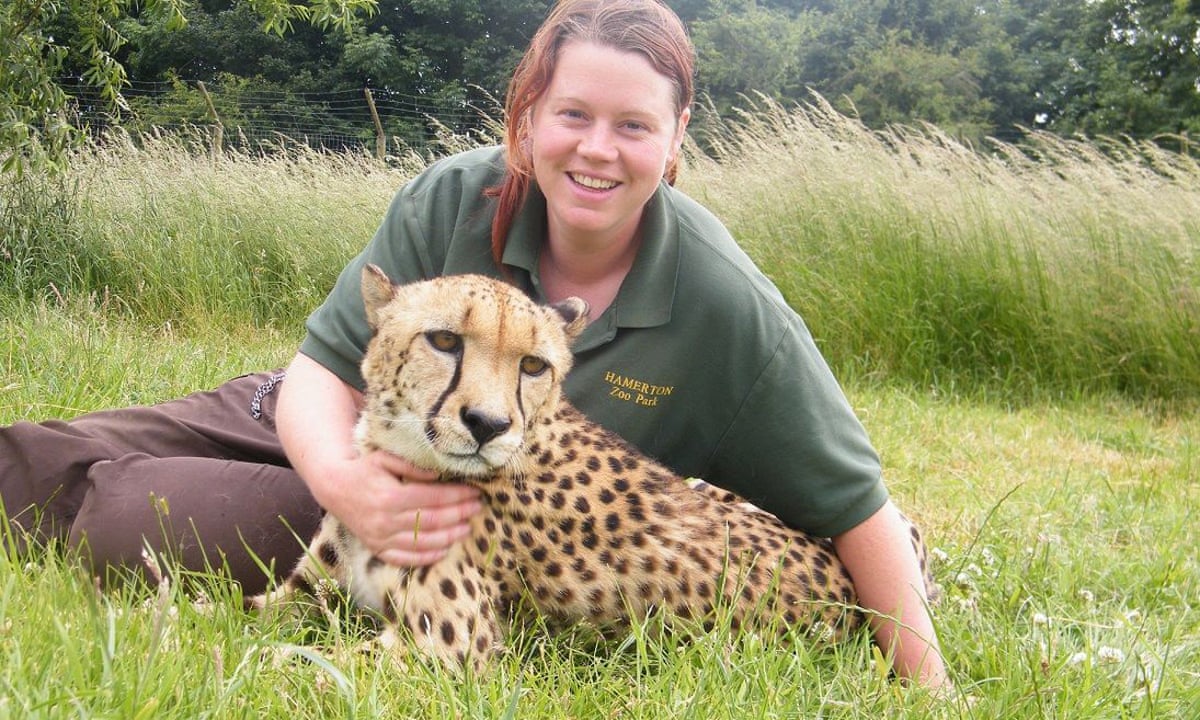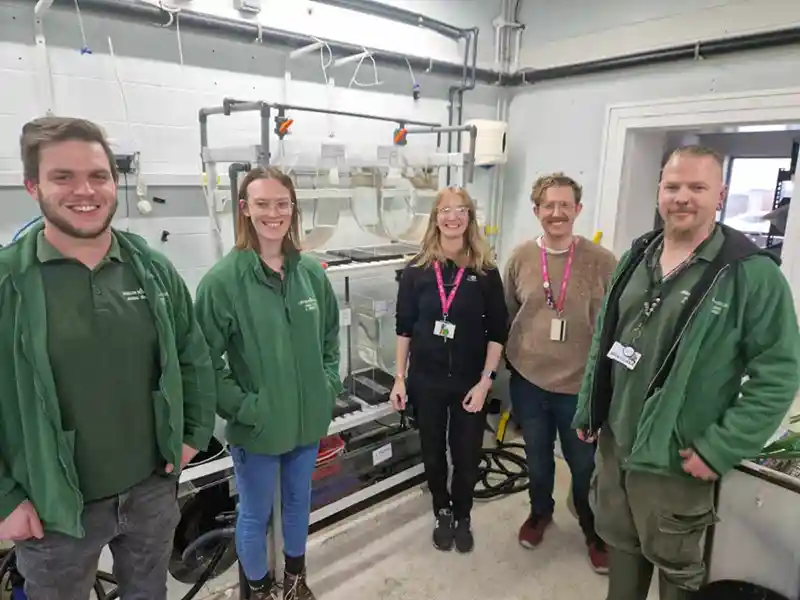견적문의
페이지 정보
작성자 Tamie 댓글댓글 0건 조회조회 184회 작성일작성일 25-06-15 01:35본문
| 회사명 | GQ |
|---|---|
| 담당자명 | Tamie |
| 전화번호 | TX |
| 휴대전화 | DH |
| 이메일 | tamie_madden@gmail.com |
| 프로젝트유형 | |
|---|---|
| 제작유형 | |
| 제작예산 | |
| 현재사이트 | |
| 참고사이트1 | |
| 참고사이트2 |

"The success of a country and its ethical progress can be judged by the way its animals are treated." - Mahatma Gandhi

Do you love animals and imagine operating in a zoo? Zoo keepers are key in safeguarding wildlife and caring for animals. At places like the Zoological Society of London (ZSL), over 20,000 animals get the care they need from experts.

To become a zoo keeper, you require effort, education, and a love for animals. This job is interesting, letting you work with lots of types and aid with important conservation work. If you're into wildlife or animal welfare, zookeeper zookeeping might be best for you.
Beginning your zoo keeper career means learning what's needed. This guide will cover education, experience, and more. It's all you require to know to start a satisfying zookeeping career.
Comprehending the Role of a Zookeeper
Exploring what a zookeeper does reveals a role filled with difficulties and benefits. They focus on animal welfare and preservation. Zookeepers strive to keep animals healthy and delighted in their care.
Daily Responsibilities and Tasks
A zookeeper's day is filled with essential jobs:
- Preparing meals that meet each animal's nutritional needs
- Cleaning enclosures to keep them tidy and safe
- Supervising animal health and behaviour
- Offering medicines and treatments as required
- Producing activities to keep animals psychologically sharp
Working Environment and Conditions
Zookeepers work outside in all sort of weather. They manage both indoor and outside areas. The task requires being physically fit and able to deal with the needs of caring for animals.
"Being a zookeeper is more than a task - it's a passionate dedication to animal care and conservation."
Kinds of Animals and Specialisations
Zookeepers can specialise in many animal groups:
- Primates
- Big cats
- Marine mammals
- Reptiles
- Birds
Your function may include dealing with 2-5 various animal species. This needs a great deal of understanding and the ability to adapt.
Vital Skills and Personal Qualities for Zoo Keeping
To be a leading zookeeper, you need more than simply a love for animals. Your job will be tough and require you to manage animals and people well. You'll also require to comprehend animal behaviour.
What zoos try to find in people consists of:
- Exceptional perseverance and psychological durability
- Strong physical conditioning and endurance
- Keen observation skills
- Capability to remain calm under pressure
- High level of compassion towards animals
Getting hands-on experience is key to mastering this function. You'll require to reveal:
- Advanced understanding of animal care methods
- Proficiency in animal handling and safety procedures
- Effective interaction with both animals and human visitors
"A fantastic zookeeper connects science, compassion, and conservation in every interaction with animals."
You need to understand about animal nutrition, behaviour, and basic vet care. Many zookeepers learn through training, offering, and ongoing learning.
Zookeeper work is not simply a task. It's a big dedication to teaching about wildlife and helping conservation. Your enthusiasm and hard work will make you stick out in this fulfilling career.
How to Become a Zoo Keeper
Beginning a profession as a zookeeper requires careful preparation and education. You must first understand the educational requirements and training courses. These will turn your love for animals into a task.
Educational Requirements
To be an excellent zookeeper, you need a strong academic base. Most tasks search for zookeeper particular qualifications:
- At least 5 GCSEs at grade 4 or above, consisting of English, maths, and science
- A levels or higher education certifications
- A college degree in biology or animal science
- Level 3 Diploma in Animal Management
Essential Certifications
Getting special accreditations can really help you in your zookeeper profession. Crucial ones consist of:
- Diploma in Management of Zoo and Aquarium Animals (DMZAA)
- Zookeeping Level 3 Diploma (RQF)
- Animal managing certificates
- First aid certifications
Training Programs and Apprenticeships
Getting hands-on experience is key in zookeeper training. Lots of locations offer fantastic chances:
- Unpaid apprenticeships at wildlife parks
- Internship programmes at well-known zoos
- Practical training at places like Colchester Zoo and zookeeper Dartmoor Zoo
- Volunteering to get real-world skills
Pro idea: Create a detailed portfolio to show your animal care abilities. It will help you in task applications.
Building Relevant Experience in Animal Care
Acquiring hands-on experience is key for those wishing to be zookeepers. The task is very competitive. So, it's crucial to begin developing a in animal care.
Your journey starts with finding methods to work directly with animals. This is a strategic action.
"Experience is the best instructor in animal care" - Wildlife Conservation Experts
Here work methods to get experience dealing with animals:
- Volunteer at regional animal shelters to develop fundamental animal managing abilities
- Seek internships at wildlife rehab centres
- Explore part-time positions at veterinary clinics
- Contact your local zoo for possible volunteer opportunities
Offering is a fantastic method to learn about animal behaviour and care. Many zoos and zookeeper animal shelters are looking for individuals who want to learn. These places provide terrific chances to get hands-on experience and show your devotion to animal welfare.
Here are some tips to take advantage of your experience:
- Keep a record of your skills and interactions
- Get in touch with specialists in animal care
- Ask for referrals and recommendation letters
- Stay persistent and show your true enthusiasm
Remember, useful experience makes you stand zookeeper out in the zookeeping world. Every time you work with animals, you find out more. This increases your possibilities of getting a job in animal care.
Career Pathways and Professional Development
Starting a profession as a zookeeper is amazing. It offers numerous chances to grow and specialise. Your journey starts with understanding the different courses in this field.
Entry-Level Positions
Entry-level jobs in zookeeping are an excellent start. They provide you hands-on experience. Zoos search for prospects with:
- Level 2 Diploma in Animal Care (minimum qualification)
- GCSEs in English and a clinical subject
- Volunteer experience at animal shelters or farms
Profession Progression Opportunities
As you get experience, your profession can grow. You can go up to:
- Junior Keeper
- Senior Keeper
- Group Leader
- Professional Roles
"Continuous learning and useful experience are key to advancing in your zookeeping profession."
Specialised Roles
You can likewise select unique areas like:
- Conservation breeding programs
- Animal training
- Wildlife research
- Educational outreach
About 25% of zookeepers get advanced degrees in zoology or animal conservation. Getting Level 4 certifications can boost your opportunities for senior functions and research.

Working Hours and Physical Demands
Becoming a zookeeper implies you'll work more than just routine hours. You'll deal with difficult physical difficulties and need to be flexible, consisting of weekends and holidays. Zoos are open every day, so you'll typically work when others unwind.
"Zoo keeping is not a normal 9-to-5 task-- it's a way of life of devoted animal care and commitment."
This job is physically demanding. You'll work outside in any weather, raising heavy items over 50 pounds. Your jobs may consist of:
- Early early morning feeding schedules
- Cleaning up animal enclosures
- Preparing specialised diet plans
- Conducting medical examination
- Preserving intricate habitats
Shifts can start as early as 5 AM and go late into the night. You'll be on your feet most of the time, moving between animal zones. Weekends and holidays become part of the task, requiring great deals of endurance and dedication.
Regardless of the obstacles, this job has excellent benefits. You'll grow strong, both physically and emotionally. You'll likewise make remarkable connections with unbelievable animals.
Health And Wellness Considerations
Being a zookeeper includes its own set of challenges. It's essential to know how to keep both animals and zookeeper staff safe. This implies following strict health and wellness guidelines.
Zookeepers deal with an unique environment where security is key. Studies reveal that health and wellness are now as essential as the zoo's main work.
Risk Management Strategies
There are several methods to manage risks in zoos:
- Daily checks of animal enclosures for threats
- Counting animals at the start and end of shifts
- Seeing how visitors act near animals
- Being ready for zookeeper emergency situations
Animal Handling Safety Protocols
Understanding which animals are most unsafe is essential. Huge animals like rhinos can be really risky. There have actually been cases where zookeepers got seriously injured.
Safety isn't just about using equipment - it's about understanding animal behaviour and staying alert.
Individual Protective Equipment
Zookeepers require to wear the best gear, including:
- Special gloves for managing animals
- Strong shoes for grip and safety
- Clothing that secures against germs
Getting vaccinated against diseases like hepatitis B and rabies is also crucial. It assists keep zookeepers healthy in their tough job.
Income Expectations and Job Market
Thinking about a profession in zoo keeping? It's important to understand about incomes and the task market. The field is growing, with more opportunities in the UK.
Let's take a look at what zoo keepers can earn at different stages:
- Entry-level zookeepers start at about ₤ 14,000 a year
- Certified ones make between ₤ 16,000 and ₤ 22,000
- Senior zookeepers can earn up to ₤ 30,000 or more
The task outlook for zoo keepers is excellent. The sector is expected to grow by 5% in the UK by 2029. This indicates around 3,910 brand-new jobs will be readily available.
"The Association of Zoos and Aquariums supports professional development for zoo keepers," a report says.
Incomes differ based on numerous things:
- Experience level
- Expertise
- Where you work
- The zoo's size and type
While the pay might not be high, the delight of dealing with animals is priceless. The typical wage is around ₤ 17,000. But, total revenues can be between ₤ 13,000 and ₤ 27,000 a year.
Conclusion
Starting a career in animal care is an amazing journey. It requires dedication, passion, and a love for knowing. With over 350 zoos and wildlife places in the UK, there are lots of task opportunities. You'll get to deal with amazing animals and assist secure wildlife.
To be a zoo keeper, you need more than simply love for animals. You should have a mutual understanding of biology, be able to communicate well, and always want to learn more. You'll gain hands-on experience, learn more about animal welfare, and establish a deep regard for nature. About 3,000 individuals in the UK have found satisfying careers in this field.

Your success in zoo keeping originates from blending science with a love for animals. Whether you're interested in mammals, birds, or marine life, this job lets you aid with conservation. Every day will bring new obstacles and discovering opportunities that will enhance your skills and knowledge.
If you enjoy animals and wish to help secure wildlife, zoo keeping might be for you. Take on the obstacle, remain curious, and turn your passion for animals into a fulfilling career.

